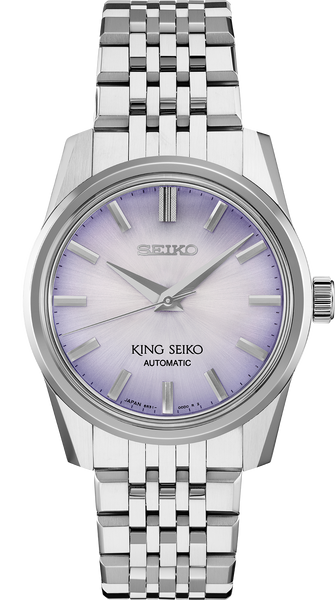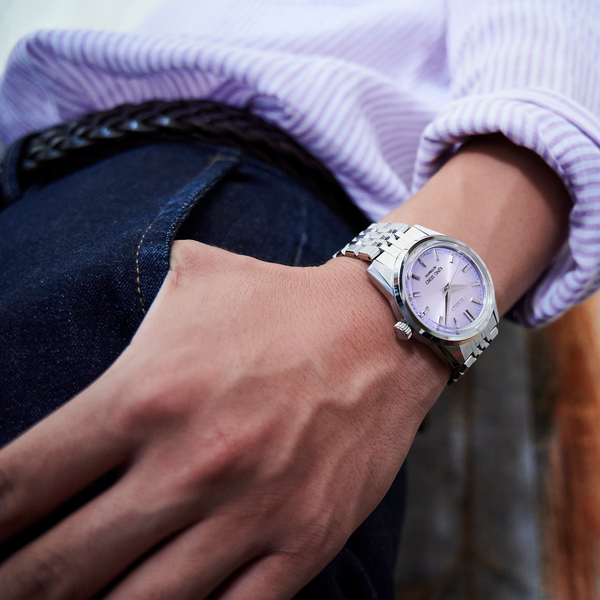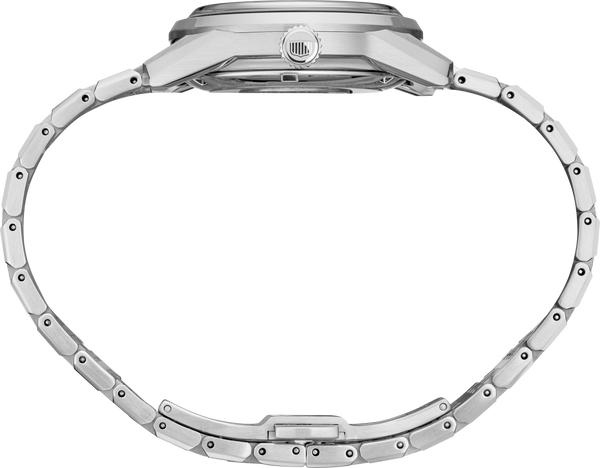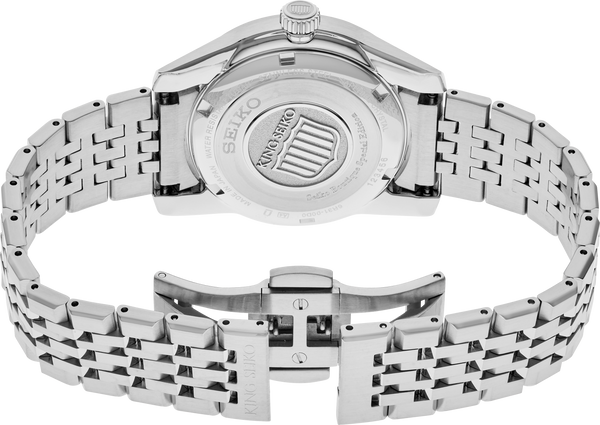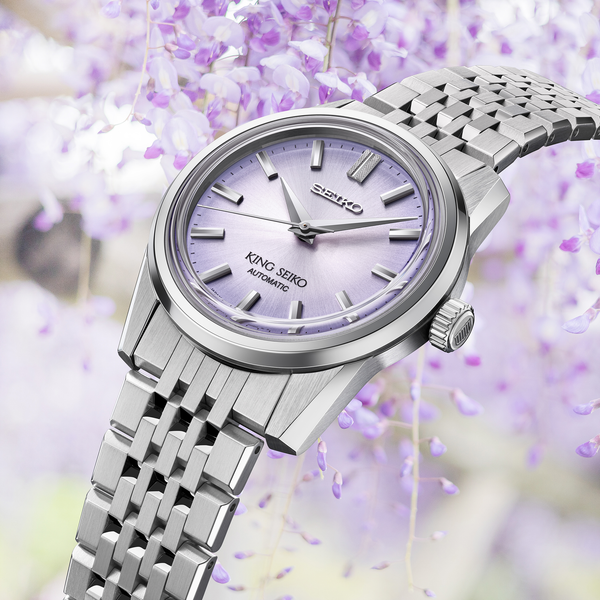- Total $0.00
14 DAY RETURNS
T-Bird Jewels will issue a full return or exchange for any jewelry or watch purchased if returned in original condition, and not worn within 14 days. Exclusions apply on custom pieces and special orders. Refunds are issued in accordance with the original payment method.
AUTHORIZED RETAILER
NEED IMMEDIATE ASSISTANCE? CALL 702.256.3900
IN LAS VEGAS SINCE 1962
Family-owned and operated since 1962, founder Mickey Kulwin first opened T-Bird Jewels in the legendary Thunderbird Hotel. Since 1995, son Darryl Kulwin, has grown and expanded T-Bird Jewels luxury jewelry store and hosts some of the most exclusive clients in the Las Vegas area.
King Seiko Special Edition. Introduced in 1961 and in production until 1975,King Seiko became one of Seiko's most technically innovative and stylish brands, noted for its sleek, dignified angularity. A newly developed slim case and the thin 6R31 automatic movement, with a frequency of 21,600 vibrations per hour, a power reserve of approximately 70 hours, and manual winding capability, make this Special Edition model exceptionally slender and elegant, with a case thickness of only 10.33 mm. In a new purple shade, "Tenjin-fuji violet," the dial evokes the wisteria that bloom in the Kameido Tenjin Shrine in Kameido, Japan, birthplace of the original King Seiko. A major tourist attraction, founded in 1661, the shrine, with its bridge and flowers, was the subject of famed Ukiyoe artist Hiroshige Utagawa's "In the Kameido Tenjin Shrine Compound (Kemeido Tenjin Keidai)," said to have influenced Impressionist master Claude Monet. The dial also features meticulously cut three-dimensional indices, including a separately carved 12 o'clock marker. Crafted of stainless steel, with the combination of mirror and hairline finishing characteristic of the original King Seiko, as well as the King Seiko crest on caseback and crown, this elegant timepiece also offers a box shaped sapphire crystal with anti-reflective coating on the inner surface, a tri-fold push button clasp, and an additional white leather strap. 10 bar, 100M Water Resistant.

